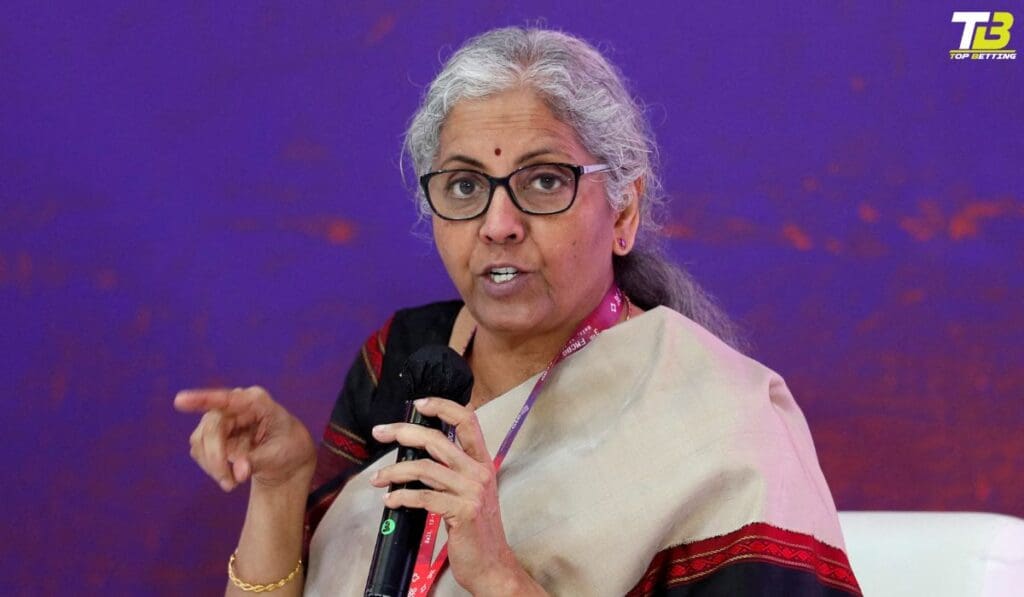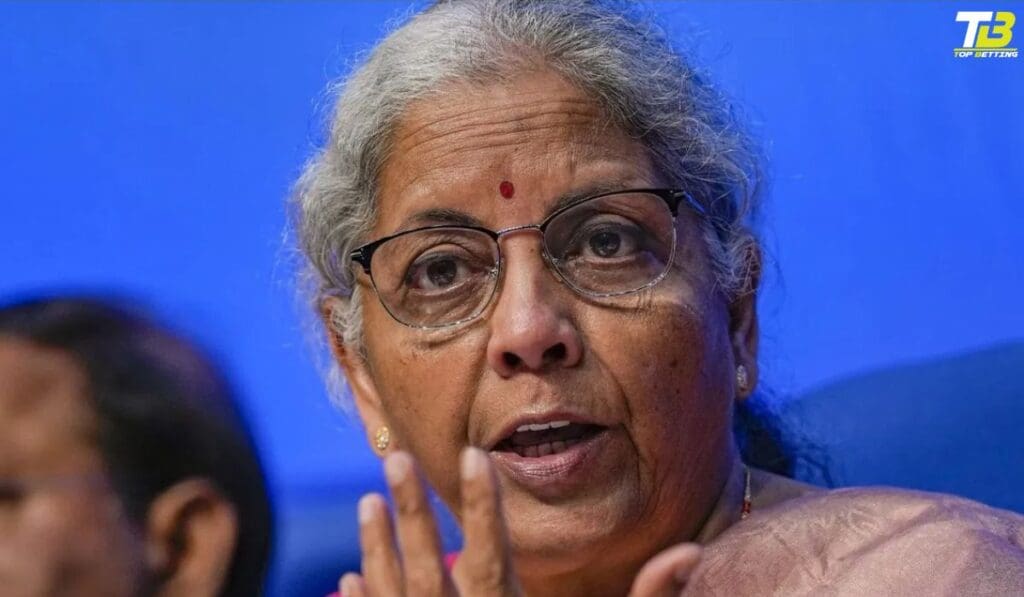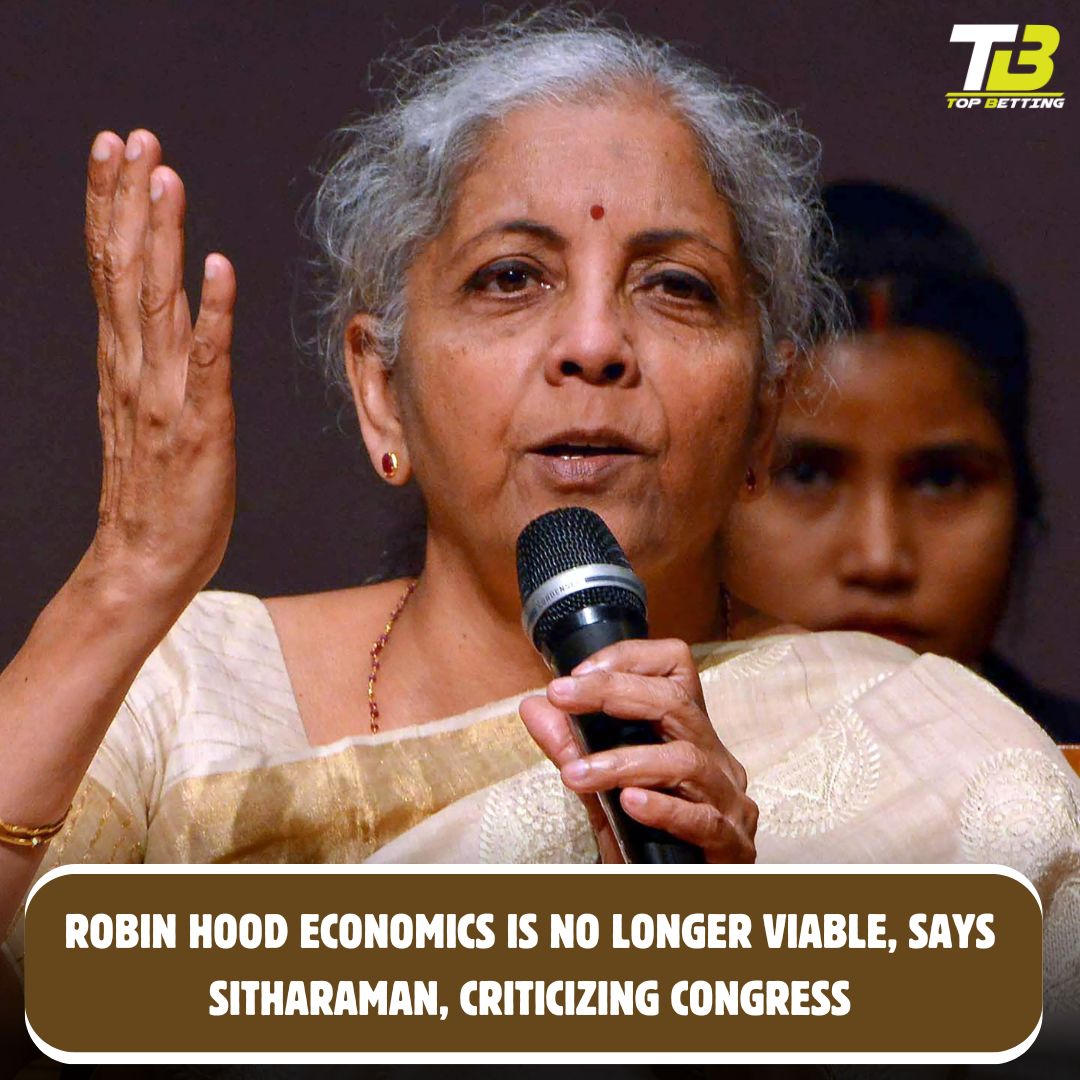
Robin Hood economics is no longer viable | Sitharaman
Introduction
In a bold statement, India’s Finance Minister Nirmala Sitharaman has firmly rejected the notion of “Robin Hood economics” as a viable solution for the nation’s wealth distribution challenges. Sitharaman’s remarks come amidst an ongoing political debate, where the opposition Congress party has been advocating for a more equitable redistribution of resources. However, the Finance Minister has categorically dismissed this approach, terming it as “insidious” and “unjust” in the current economic landscape.
The Evolving Landscape of Wealth Creation and Distribution
Sitharaman’s stance reflects a fundamental shift in the government’s perspective on the role of wealth creators in the Indian economy. She emphasizes that the days of simplistic “Robin Hood” tactics, where the wealthy are robbed to subsidize the poor, are long gone. The Finance Minister argues that wealth creators, such as entrepreneurs and businesses, play a crucial role in generating employment, driving economic growth, and providing resources to the government. Undermining their contributions, she contends, would be detrimental to the nation’s overall prosperity.
Critiquing the Congress Party’s Narrative
Sitharaman‘s criticism extends to the opposition Congress party’s approach, which she claims has been dominated by a “false narrative” aimed at undermining the BJP’s performance in the ongoing Lok Sabha elections. The Finance Minister asserts that the Congress has been relentlessly “talking about carrying out X-rays of wealth and caste census,” with the apparent goal of redistributing resources in a manner that she deems irresponsible and outdated.
Defending the BJP’s Approach to Economic Growth and Welfare
In contrast, Sitharaman outlines the BJP’s strategy, which she says focuses on improving economic growth while simultaneously targeting the distribution of amenities to those in need. The Finance Minister argues that this balanced approach is more sustainable and beneficial for the country, as it empowers wealth creators to continue contributing to India’s development, rather than simply taking from the affluent to subsidize the less fortunate.
Addressing the Criticism of “Crony Capitalism”
Sitharaman also addresses the longstanding criticism of “crony capitalism,” which the Congress party has often leveled against the BJP government. The Finance Minister asserts that the Prime Minister’s recent remarks about the alleged financial ties between the Congress and prominent business groups like Adani and Ambani were not an indictment of the business community as a whole, but rather a direct response to the opposition’s hypocritical stance on the matter.
Embracing a Nuanced Approach to Regulation
Sitharaman’s perspective on the role of regulation in the economy also reflects a nuanced approach. While acknowledging the need for oversight, she emphasizes the importance of maintaining a “soft touch” to ensure a better response from the regulated entities. The Finance Minister suggests that regulators should continuously engage with stakeholders and be open to fine-tuning regulations based on evolving market dynamics.
Addressing Concerns in the Stock Market
Regarding the concerns expressed in the stock market about the BJP’s potential margin of victory in the Lok Sabha elections, Sitharaman dismisses these as a “false narrative” being propagated by the opposition. She expresses confidence that the BJP will secure a comfortable majority, and attributes the market’s jitters to the opposition’s attempts to undermine public expectations.
Empowering Wealth Creators, Targeting Welfare
Sitharaman’s stance reflects a broader shift in the government’s approach to economic policy, where the emphasis is on nurturing wealth creation while simultaneously channeling resources to address the needs of the underprivileged. This strategy, she argues, is more sustainable and beneficial for the country’s long-term growth and development.
The Evolving Role of Regulators
Sitharaman’s comments on the need for a “soft touch” in regulation underscore the government’s recognition of the changing dynamics in the Indian economy. The Finance Minister acknowledges the importance of maintaining an open dialogue with the regulated entities, suggesting a willingness to adapt regulatory frameworks based on market realities.
Navigating the Complexities of Wealth Distribution
The debate surrounding wealth distribution in India is multifaceted, with valid concerns raised by both the government and the opposition. Sitharaman’s rejection of “Robin Hood economics” suggests a desire to strike a balance between empowering wealth creators and ensuring equitable access to resources for the less fortunate.

Addressing the Concerns of the Stock Market
Sitharaman’s dismissal of the stock market’s concerns about the BJP’s electoral performance reflects the government’s confidence in its ability to secure a decisive mandate. The Finance Minister’s assurance that the actual results may differ from the “false narrative” being propagated by the opposition underscores the government’s belief in its ability to deliver on its economic agenda.
Fostering an Enabling Environment for Entrepreneurship
Sitharaman’s defense of the business community and wealth creators aligns with the BJP government’s broader emphasis on promoting entrepreneurship and private sector-led growth. This approach, she argues, is essential for generating employment, driving innovation, and ultimately contributing to the nation’s economic prosperity.

Conclusion
Nirmala Sitharaman’s rejection of “Robin Hood economics” and her articulation of the BJP government’s approach to wealth distribution and economic growth underscore a fundamental shift in the government’s economic philosophy. By emphasizing the role of wealth creators, promoting a balanced strategy of growth and welfare, and embracing a more nuanced approach to regulation, the Finance Minister presents a vision for India’s economic future that seeks to strike a delicate balance between empowering the private sector and ensuring inclusive development.











